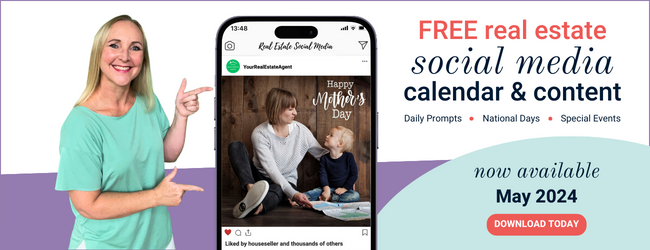Many real estate businesses enter the REB Awards each year. But sadly, only the select few make it to the finals and win their category. So what’s the winning formula? As a judge, here are my tips for an award submission that’ll impress.
For this article, I’m talking specifically about the Real Estate Business Awards (REB Awards) but the principles are pretty much the same for any industry awards submission. So, although in my book you’re already a winner just for entering, if you want to be able to add that Finalist or Winner badge to your website and other marketing, I have some tips to help you get there.
Why enter the REB Awards?
Well done to everyone who took the time to enter. Submitting your proposal is no easy feat.
By entering the awards, you get the chance to showcase your abilities to a broader audience and prove it. And even if you didn’t win one of the main awards, but made it to the shortlist, you can still promote that you were a finalist – and that’s worth something.
What does a successful submission look like?
Let’s get real, here. Not every submission can win.
As a judge, I have to admit that reading REB Award submissions is somewhat like kissing a lot of frogs to find a prince.
‘Success’ in my book is a submission that tells a story and is a pleasure to read, one that indicates that the agency or agent has put thought and time towards a coherent narrative, and has attempted to follow the judging process as asked.
Please understand, if all you can manage is a one-page submission, it’s hard for the judges to take you seriously.
So, read on for my top tips to impress the judges.
8 tips to professional award submissions
1 – Answer the questions
It may seem obvious, but this is the key to all the rest of the tips.
There are usually only four or five questions asked per category, and there’s a good reason those questions are asked.
This isn’t the Miles Franklin award; in these real estate business awards, we need to compare like with like, accounting for each business’s size and budget.
“Don’t make extravagant but vague claims; show us the proof.”
When judging, I consider whether I’m judging an individual, an agency office or a head office. The associated budget they’re likely to have and in-house skill sets to which they’re likely able to afford to employ.

2 – Support your claims with statistics
Generally you’ll need to back up any claims with proof of sales statistics, or evidence of the systems you’ve used and associated marketing numbers. If you make extravagant but vague claims about your success in a particular endeavour, you’ll be marked down.
3 – Don’t confuse style with substance
It’s often easy to spot the submissions that have had professional guidance and help. This is great. A professional writer and graphic designer can make all those dry statistics pop.
However, when I I judge (and probably because I run a creative agency), I generally look past the presentation and focus solely on whether or not your submission answers the questions, and whether or not you’ve provided sufficient supporting evidence.
As a judge, I don’t care how beautifully designed your submission is. If it doesn’t give me the information being asked, in a concise and convincing manner, then it won’t make the cut.
4 – Tell your story and engage the judge
Rather than upload your existing marketing materials or a listing presentation kit, tell your story to draw in the judge (this is the same approach you should take when pitching to potential clients too).
Sadly, we see some submissions that are simply the upload of a marketing kit where the agency hasn’t attempted to answer the questions at all.
When you’re sharing your story, imagine that you’re telling the tale to a colleague or a friend – then write it down.
5 – Less is more with information
This goes back to why it’s critical to answer the questions – and just the questions.
“Get to the point quickly in your submission, and make sure there is a point.”
As judges, we’re reading through multiple entries and scoring on the information that you’ve provided in your answers. For myself, I generally spending between 30 to 40 hours, over a number of evenings and weekends, reading submissions (with wine in hand, and after my children are in bed!).
For any of the judges, it‘s a large commitment of time, unpaid, so we can’t absorb reams and reams of information.
- Get to the point in as few words as possible.
- Be convincing and persuasive.
- Highlight your point of difference.
- Showcase what you do over and above what would be expected of you as an agent, agency or head office.
Remember, we have (at best) one hour to get to know you, your business and why you deserve to win.
6 – Share the statistics
I’m mainly given the marketing and digital categories to judge. And we all know that the beauty of digital is that it’s measurable.
So when you’re telling your story, make sure to provide the following:
- Back up your marketing claims with statistics.
- Share the creative you developed.
- Detail the ad spend, reach, click throughs, downloads, subscribers, appraisal requests alongside the database growth you’ve achieved.
- Show proof that your strategy achieved its objectives.
- Tell me where the buyers came from: database, signboard (yes that’s possible to share!), social, print ad, web listing, etc.
7 – Use video, not only the written word
The best submission I ever judged included a video that answered the questions in addition to their written report and supporting material. As a judge, I really felt I got to know the entrants as the video allowed them to answer more naturally than with written answers alone.
The company was Motion Property in Melbourne, and they won the REB Awards in 2017.
Here’s their video submission, kindly shared by Director of Marketing, Nurit Brukarz:
A good friend of mine, Stuart Benson, recently asked me for tips before he entered the awards again. So, of course, I mentioned how compelling video can be. If you know or know of Stu, you’ll be aware of his brilliant sense of humour. He took the whole video idea one step further and created a website where you could Vote for Stu alongside a personalised video message to the judging panel.
Unfortunately for Stu I’m not judging his category and have no idea if he will win, but you’d have to give him 10 out of 10 for originality!
8 – Remember that the judges can see you online
The thing about digital marketing is that, whatever you claim in your submission, it’s pretty easy to jump online and check out whether what you’re describing lives up to the explanation.
Often entrants have the right idea and describe a logical strategy or reasoning for why they chose to follow a certain path, but the execution on occasion does not always meet the expectations of the written description.
I’m sure with time the knowledge, technical and creative skills in the area of social and digital marketing will come, but its clear to see for many it’s still a steep learning curve. So fear not, you are not alone!
How digitally savvy are you?
Over the past year, I’ve found that the real estate industry’s understanding of digital has certainly improved but there are still a lot of gaps.
This year many more entrants were using more technical terminology and online advertising jargon; for example, people started talking about pixels, retargeting, custom and lookalike audiences. It’s great that there’s continued interest in pursuing and learning how to master the digital world as a real estate brand, but it’s important to ensure you have an overarching strategy and understand how certain aspects of the digital or social media marketing funnel fit together to promote yourself as an agent, office or real estate brand.
I’d say that most real estate businesses are still only scratching the surface and that there’s some way to go before a deep level of understanding of this new media age is truly achieved by the real estate industry.
Be in control of your own digital destiny
Many agencies rely on external service providers and their social and search marketing “black boxes”; that is, most real estate professionals don’t truly understand the detail as to how their social or search advertising solutions are helping them generate leads. As a result, the agent or agency doesn’t entirely know what the third party is doing to (or for) their account and whether one social or digital advertising solution is more effective than the next.
When I’m advising agents and agencies on their digital marketing strategy, generally I highlight that they should retain control over their digital destiny as much as possible. Rather than blindly buying packages offered by portals and news media sites, agents should look to becoming masters of their own destiny with their own digital programs, and support teams – as I always say it’s far better to be on the path to owning your own digital home rather than continually renting.
Let’s catch up
So, to all of you who’ve entered the REB Awards, I wish you the best of luck and look forward to seeing or meeting many of you at the awards event. Please feel free to look up my table number on the night and come and say “Hi”. It would be great to meet you in person!


Join the Conversation - add your thoughts